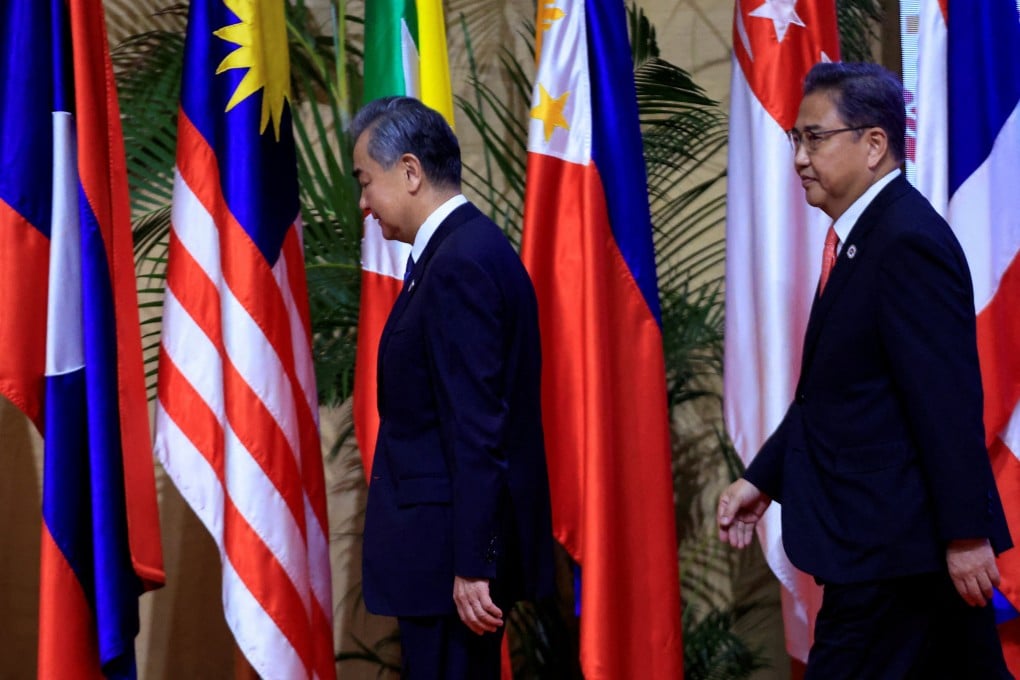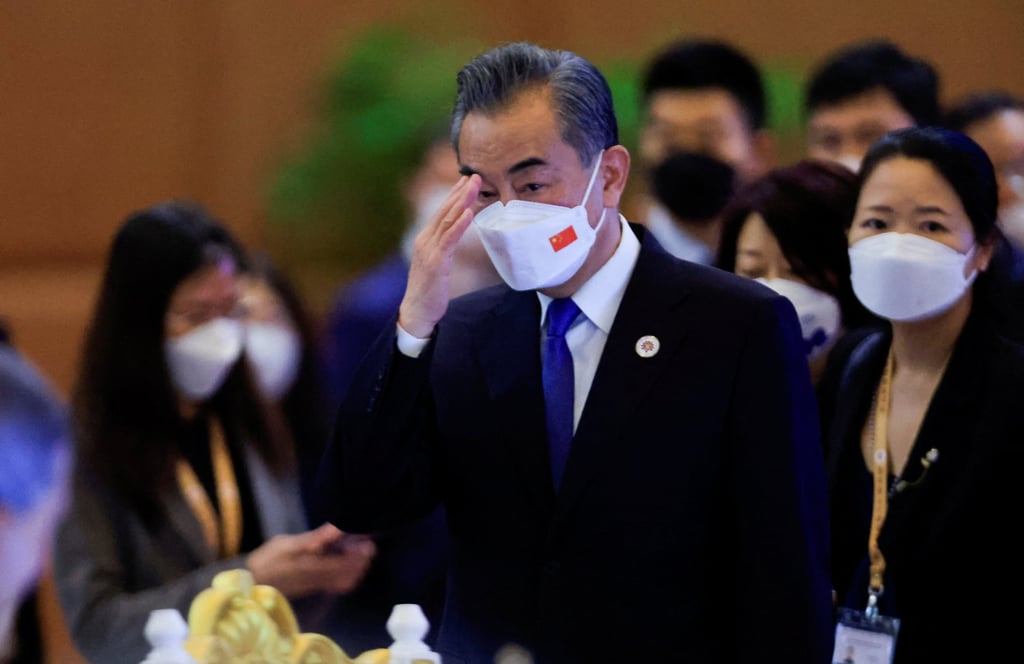Advertisement
On Balance | Why Beijing’s war games risk pushing Asean neighbours into the arms of the US
- Instead of joining China in condemning the US over Nancy Pelosi’s Taiwan trip, Asean has called for restraint in the region
- While Southeast Asian countries would rather not provoke their larger neighbour, Beijing’s military drills so close to their doorsteps make it difficult to see the US as the main aggressor
3-MIN READ3-MIN
48

Beijing would like you to believe that the international community has had its back throughout the fourth Taiwan Strait crisis, sparked by US House Speaker Nancy Pelosi’s stopover in Taipei.
It’s an assertion that’s difficult to take seriously when China’s Foreign Minister Wang Yi became so frustrated over criticism at a conference with representatives from the Association of Southeast Asian Nations (Asean) that he had to walk out.
That followed a rebuke by the G7 about the unprecedented missile frenzy by the People’s Liberation Army (PLA) that noted China expert Bonnie Glaser called “a first” for the way that it called out China’s actions so specifically.
Advertisement
The G7 has been emboldened by the proximity of most of its members to the horrors that Russian President Vladimir Putin has been inflicting on Ukraine for the past half a year. So, it’s not surprising that they would ratchet up their rhetoric against another large authoritarian country menacing a smaller neighbour, even if none of them recognise Taiwan as an independent state.

But Asean? Given the significant economic leverage that China has over the region, the bloc isn’t exactly known for being eager to poke Beijing in the eye, as a group or individually.
Advertisement
Advertisement
Select Voice
Select Speed
1.00x
